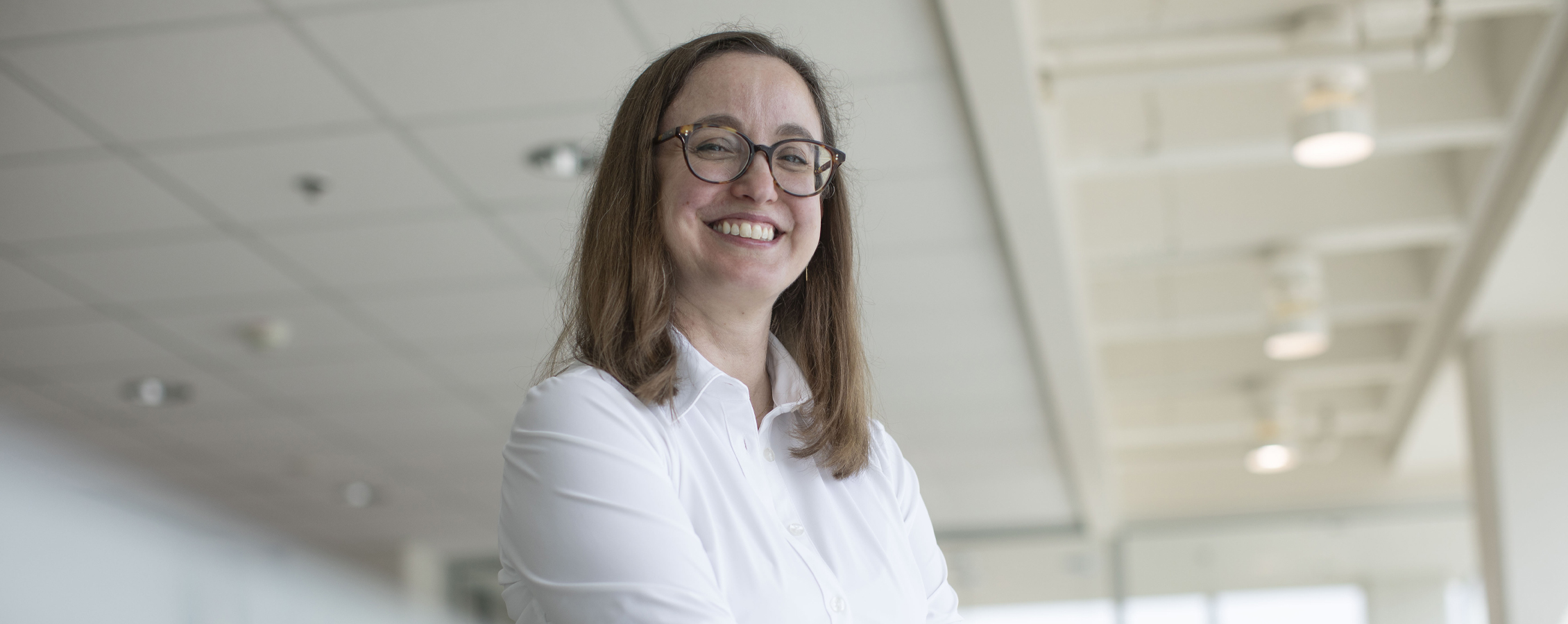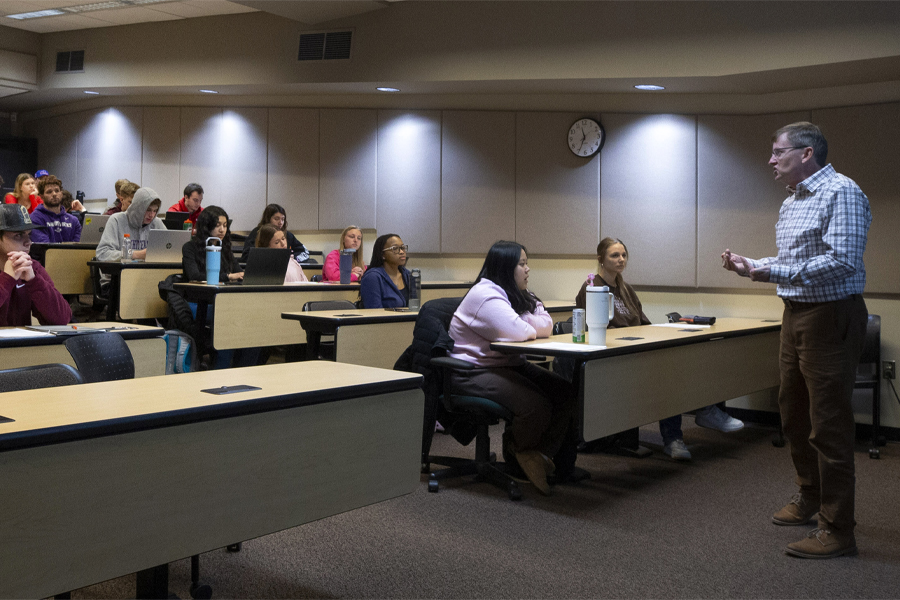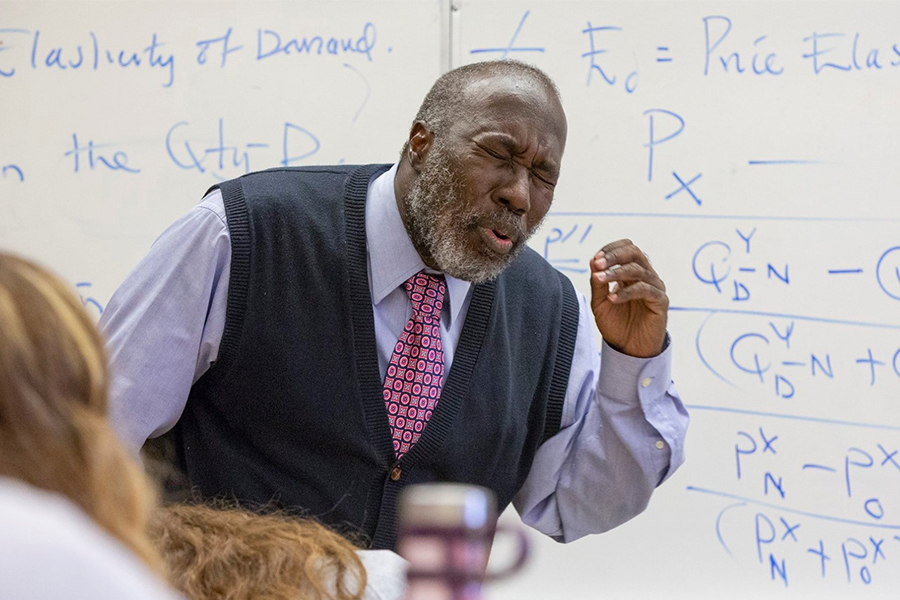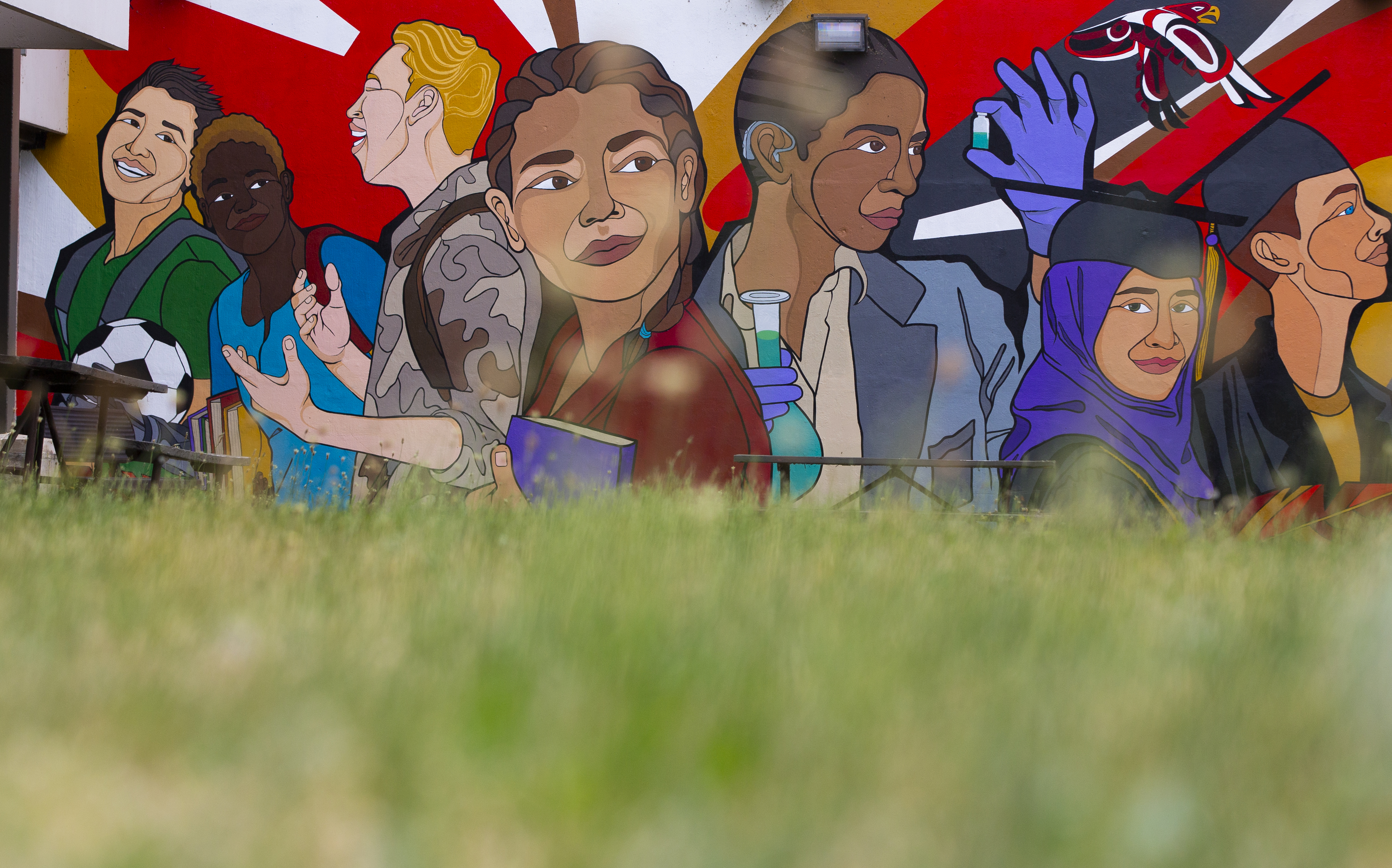Great teaching: Striving to make college possible and meaningful
October 07, 2024
Story and photos by Craig Schreiner
Soon after Anneke Lisberg came to the University of Wisconsin-Whitewater 13 years ago, she began to realize she had a front-row seat to her students every day — along with an opportunity to help make college doable, possible and meaningful for them.
Lisberg, an associate professor of biology, was interested in student success beyond her own classes. She learned that nationally, three categories of students were finishing college at a rate dramatically less than their peers: first-generation college students, students from underrepresented minority groups and students with low socioeconomic status.
In 2012, Lisberg and her then-colleague Brett Woods set out to do something about that with a summer program for incoming first-year students at UW-Whitewater. This bridge program, called STEM Boot Camp, has improved graduation rates among these key categories and has become a learning laboratory on student success.
“We would get students before day one — before they started their freshman year — and we would keep talking to them,” said Lisberg. “A lot of what I was able to learn was because I was fortunate to be able to build relationships with students and hear from them long-term.”

Associate Professor of Biology Anneke Lisberg, rear at right, and Associate Professor of Biology Stephen Levas, center, with student mentors in the 2024 STEM Boot Camp at Upham Hall. The student mentors are, from left, Alexis Morissette, left, Nelson Cowan, second from left, and Janiya Heard. (UW-Whitewater photo/Craig Schreiner)
“Over the years we would see all of the reasons why students were pushed to the edge of deciding whether they could continue or not,” she said. “Every time we would see a challenge that seemed like we could do something about, we would address it in the program. These were things we could talk about — these were things we could help students avoid or prepare for.”
Lisberg discussed what she has learned about the challenges these students face in “Bridge to College,” a Tedx Youth @ Wrigleyville talk she gave in 2019.
UW-Whitewater Chancellor Corey King saw a link between Lisberg’s work with students in the STEM Boot Camp program and the role of assistant chancellor for inclusivity and belonging. Since being tapped for the opportunity in 2023 through the Chancellor’s Leadership Fellows Program (LFP), Lisberg has continued teaching biology and running the STEM Boot Camp program as she has helped to bring together six special chancellor committees — Disability Concerns, Inclusive Excellence, LGBTQ+ Inclusive Excellence, Mental Health, Student Success and Veteran and Servicemember Success — and help those groups communicate and realize goals related to retaining students.
“The exciting thing about moving into this position is that I am able to see the landscape from a broader view,” said Lisberg. “I’m talking and working now with people from across the university, with people who have the capacity to see all these other moving pieces and make some changes.”
In her role as assistant chancellor, she has focused on lines of communication from classrooms to campus decision-makers.
Lisberg said change is easier to identify and achieve at Whitewater because of the way students are committed to their own goals. She recalls feeling this commitment and a spirit of collaboration when she first came to campus 13 years ago.
“They have career goals in mind or they see it as a path,” she said. “They don’t always know how to do it or how to make college work for themselves. That’s a really great thing to be around because they are bringing the energy and doing the work–it’s easier to get to a place where we can help connect the dots and make the university work for them the way they need it to.”
“I just felt like students here were wanting to get it (college) done,” she added. “Because we have so many first-generation students here, college isn’t just the next step that you’re expected to do. There are a lot more students who are taking college seriously as a way of getting to where they want to go.”
Although Lisberg was not a first-generation student herself, she recalls hitting some of the same walls as an undergraduate.
“I felt like my experience as an undergraduate was one where I had to figure out how to make the system work for me,” she said. “How do you ‘be a student’ in college? It was something I figured out with a lot of trial and error.”

Savion Heaston-Stewart, computer science major from Milwaukee, participates with other incoming first-year students in a summer STEM program prior to the fall 2023 semester at UW-Whitewater. (UW-Whitewater photo/Craig Schreiner)
This August, Lisberg and STEM boot camp program co-director Stephen Levas, associate professor of biology, are giving another group of first-year students a head start on subject matter and study skills before the fall semester begins.
“We see how much they grow and how much they change in their time here,” said Lisberg. “It’s just an incredible thing to be able to witness.”
“Students need to learn a lot from each other to succeed,” she said. “Inclusivity means intentionally creating classroom and campus environments where students are more likely to collaborate together, with faculty, and with other key people.”




